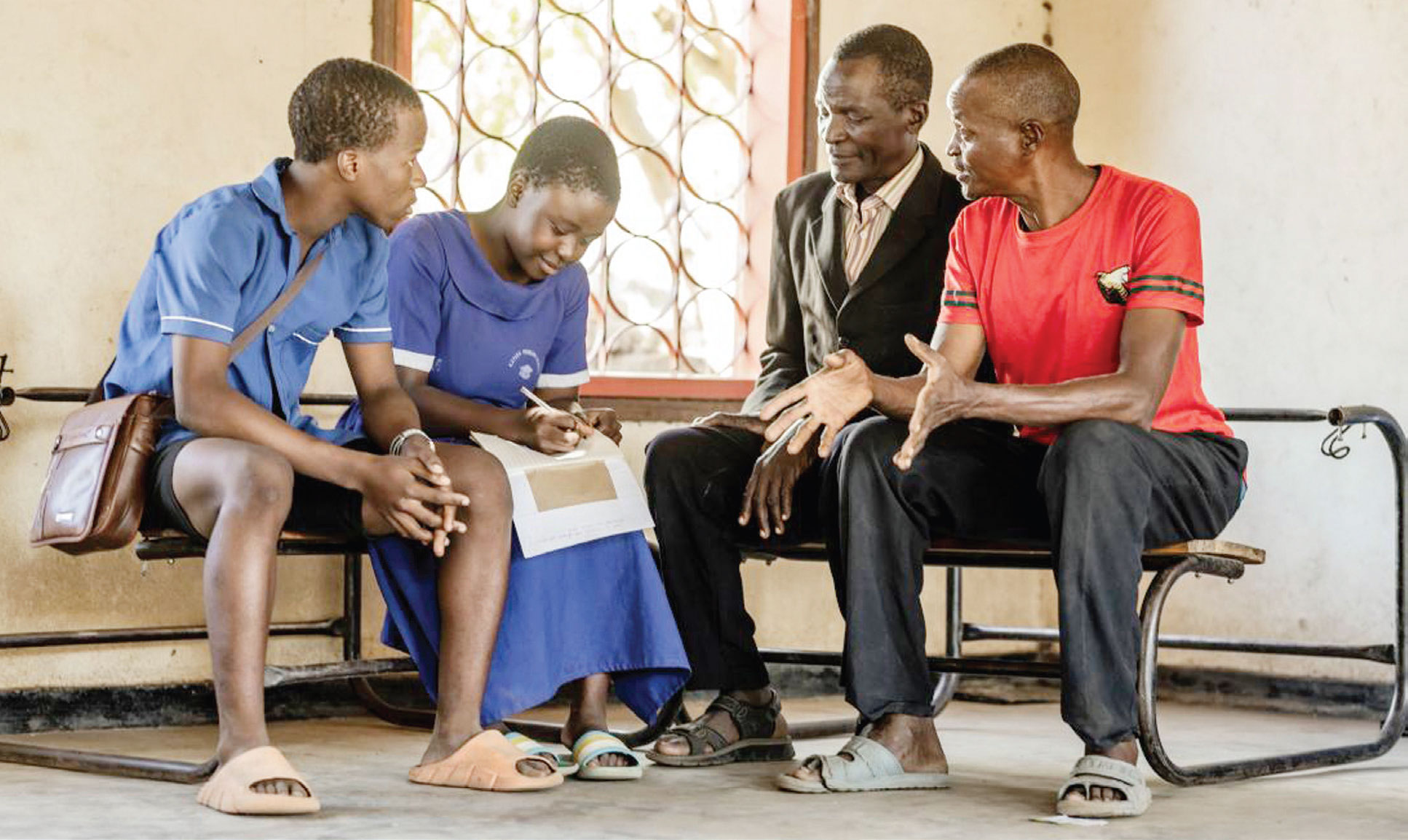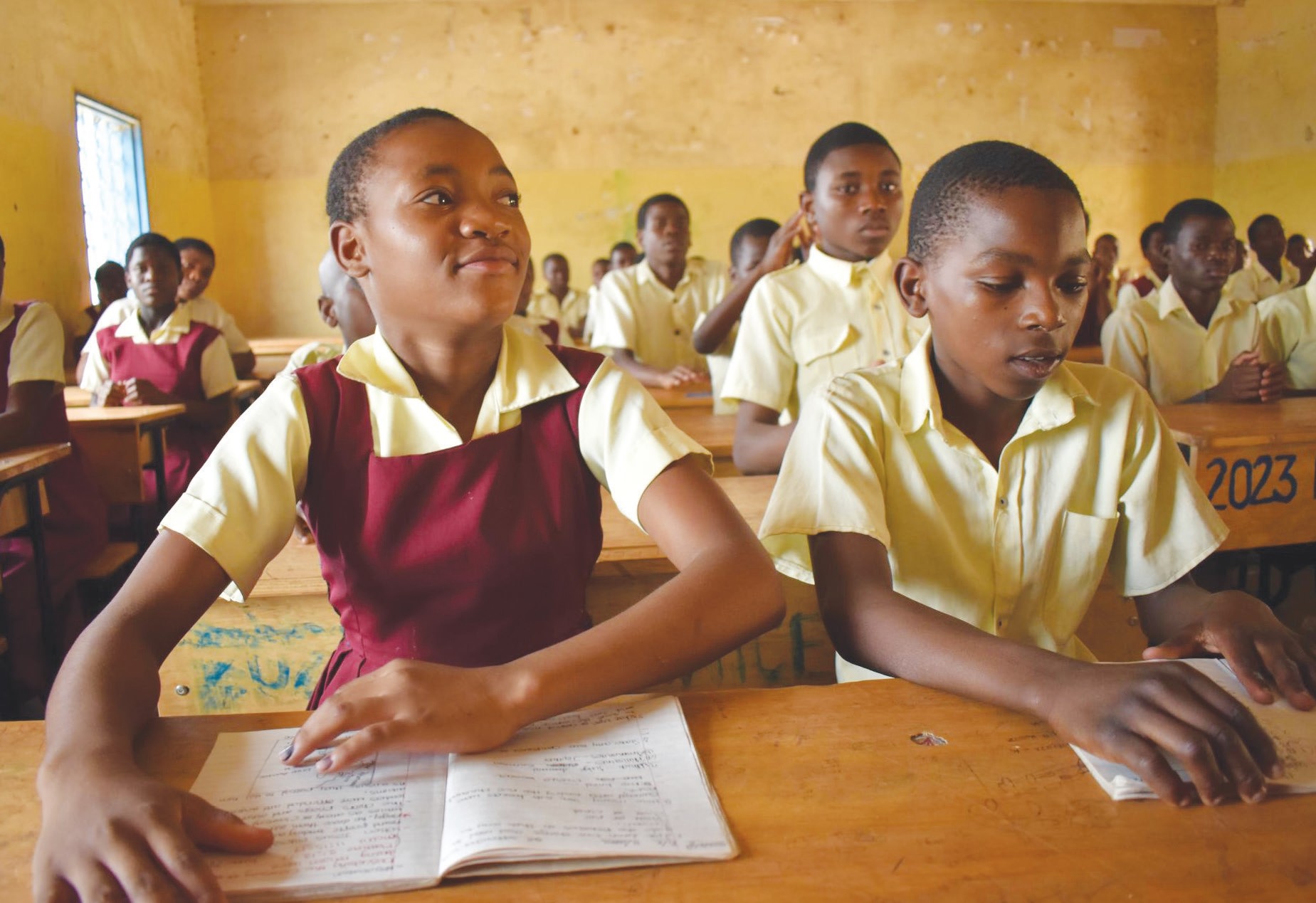Is education sector making headway?
 A year in office may not be enough for a leader to bring about dramatic change to any system. But for a visionary leader, one year is enough for setting a tone that can, with time, define a course of instituting noticeable change.
A year in office may not be enough for a leader to bring about dramatic change to any system. But for a visionary leader, one year is enough for setting a tone that can, with time, define a course of instituting noticeable change.
President Joyce Banda rose to leadership with great promise. She symbolised change from what defined her predecessor. And so it was even in the education sector.
During a State of the Nation Address last year, Banda said she was not going to deviate from the gist of policy direction defined by his predecessor, Bingu wa Mutharika.
According to the address, the promises and directives were made with an understanding that education, being one of the key priority areas in the country, was central to the country’s development agenda.
Banda said she would focus on the promotion and recruitment of more teachers, sorting out payroll challenges and enhancing girl’s education. On tertiary education, she promised to continue expanding university education, abandon the quota system and also assured lecturers of academic freedom.
Most commentators hail the President for guaranteeing, through words, academic freedom in the country’s universities.
“There has in general not been any conflict as we saw last year around academic freedom,” says Limbani Nsapato, a specialist on education policy.
Benedicto Kondowe, executive director of Civil Society for Quality Education (CSQE), adds that there has, again, been efforts by government to enhance education opportunity for all, especially girls.
“Apart from increasing budgetary allocation to education, there has been a lot of efforts by the President to award deserving students with scholarships to pursue their studies. How the president supported the Zodiak Girls Scholarship campaign and girls’ hostels project is quite phenomenal,” he says.
Apart from adjusting the salaries of civil servants, including teachers, by up to 61 percent, Kondowe adds that President Banda made a commitment to promote some primary school teachers and so far, 10 000 teachers have been promoted.
And despite failing to meet the internationally accepted 20 percent allocation to the education sector, Kondowe hails President Banda because the “the ministry received the biggest share of the national budget after successfully lobbying government, with support from the civil society.
“Some efforts have been made to harmonise management of schools in Malawi through the proposed revised Education Bill. This bill seeks to empower the ministry to take full charge of the schools unlike currently where some schools are registered with the Ministry of Trade so far as they are a business venture,” he says.
Dr Steve Sharra, an education specialist, argues that although Banda has made a number of positive strides to improve teachers’ situation, she “hit a low point with teachers when she, on two occasions, remarked that teachers are construed as disparaging and demeaning”.
“She alluded to how farmers make more money than teachers, in a tone that betrayed contempt for the profession,” he says.
And there are a number of unsolved hurdles facing teachers’ conditions of service.
Another negative factor, according to Kondowe, is government’s failure to address controversies surrounding the administration of the rural teacher allowance, where some eligible teachers are not the beneficiaries of the same.
“In some cases, the urban schools are beneficiaries contrary to the intention of the scheme,” notes Kondowe.
He adds that government has also failed to promote teachers, some of whom have been in the system for the past 15 years.
“Government has also failed by keeping open distance learning (ODL) teachers for over six months without deploying them when our education system is challenged with inadequate number of trained teachers,” he says.
He further notes the meagre absorption capacity of the Ministry of Education which has led to huge return of unspent funds to Treasury.
“This has been a major concern by development partners and a contentious issue in every of the sector working group meetings,” he says.
Additionally, Kondowe feels that the massive examination leakages in 2012 and the poor results in MSCE and JCE examinations mean that examinations administration is still poor in the country, and there has not been any tangible solution her government has put forward to deal with this mess in 2013 examinations.
Even on the tertiary education, with universities facing daunting financial allocations, Banda’s major flaw is not just her failure to complete and open the Malawi University of Science and Technology (Must). Both Nsapato and Kondowe criticise the President’s unclear stand on the status of the Equitable Selection Policy to public universities.
“Despite the university issuing a statement that selection for 2012/13 was made based on the said policy, the ministry has denied any use of the Equitable Selection Policy. This has led to the public being in the dark and this undermines the accountability of the State to the people,” says Kondowe.
Sharra notes that the important legacy any Malawian President can leave the country is the recruitment of extra 20 000 teachers and the construction of additional 30 000 classrooms.
“These two actions would change the teacher-pupil ratio from being the highest in the world, to levels teachers would greatly appreciate. Currently, the country is able to construct 2 000 classrooms per year, which would take 15 years to achieve the desirable figure.
“In addition to drastic increases in the recruitment of teachers, the next agenda would be to upgrade the minimum qualifications for primary school teachers from the current two-year certificate towards a four-year bachelor’s degree,” he says.
Although the current educational policy already points in this direction, Sharra says that this requires good funding.
“Equally transformational for the educational system would be the equipping of Teacher Development Centres with Internet connectivity, to allow more teachers to go online and access a treasure trove of educational materials available on the Internet. The number of Malawian teachers online is discouragingly low,” he says.
However, for these to be possible, argues Sharra, the human resource base of the ministry needs to be enhanced and its capacity to handle more funds and bigger numbers of teachers and other personnel enhanced.





